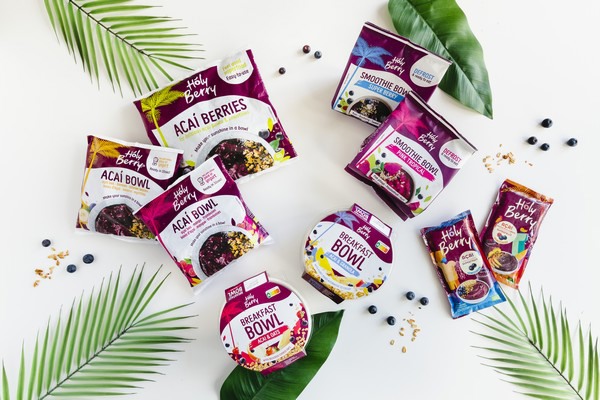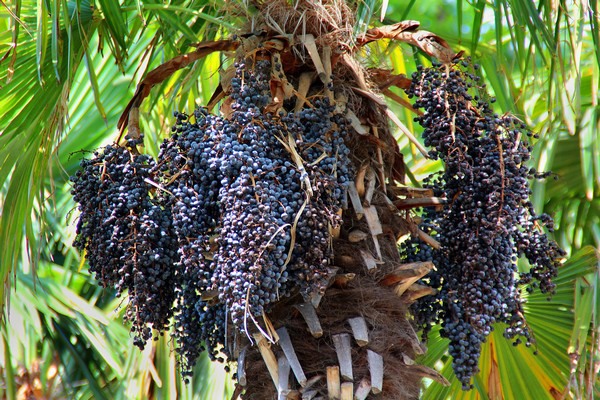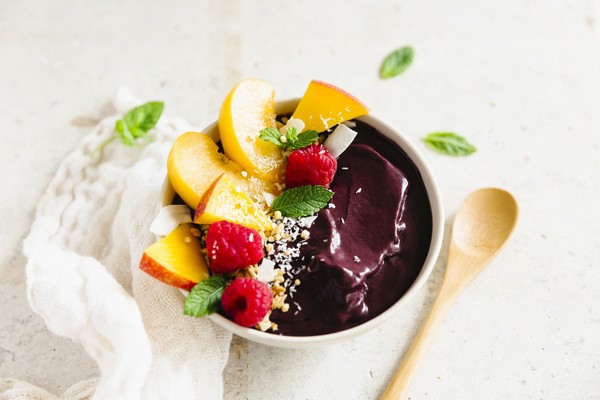Açai berries, mostly grown in Central America, are not yet well-known in Europe. Yet, this fruit which is very similar to blueberries but contains even more antioxidants and vitamins, is increasingly appearing in supermarkets or higher-end restaurants. The Belgian brand The Holy Berry is one of this exotic fruit's advocates.
It now wants to take the Dutch market by storm with its frozen Açai pulp-based products. "We still have to genuinely bring it to Belgian's attention, whereas people in the Netherlands are already far more familiar with nutritious Açai berries," begins Margaux Bonte.

She and Stephen De Rycke founded this brand in 2016 after they were introduced to Brazilian Açai berries on a trip to Australia. "We ate it almost daily during our six-month stay. Back in Belgium, we missed it and couldn't get the same quality here or in neighboring countries. We, thus, decided to start importing it ourselves."
Margaux and Stephen found a partner in Brazil who works according to their strict sustainability, quality, and ethical trade criteria. "Fresh wasn't an option because Açai berries are extremely fragile and spoil almost immediately after picking, so you can't eat them fresh," explains Margaux.
Volatile trade
That still, however, presents considerable challenges. As mentioned, fresh is not an option, but the harvest is very erratic too. "They harvest, at most, twice a year. But Mother Nature is unpredictable. Sometimes there are very few berries; sometimes, they're abundant. Trading and importing Açai berries certainly isn't straightforward, which may be why not many people get into it, especially how we do it. We set the bar as high as possible on every level. A shortage makes it very expensive to get the berries here."
"Fortunately, that availability's been quite stable. But transport costs have recently been as much as nine times as high, which was somewhat of a struggle for a while. Still, we try to avoid price increases and, thus, keep the threshold as low as possible to get people to eat healthily," Margaux continues.
"The economic crisis doesn't make spending money on pricier items like Açai products easy either. People then prefer buying basic products, like apples or potatoes. Nevertheless, with our passion and constant search for quality, we want to make Açai berries a known product. Hence, no price increase."

Responding to convenience
The brand started in higher-end organic stores and breakfast/brunch eateries in Belgium. "That's where our main target group is, and with our products, we want to focus primarily on the breakfast segment to offer something other than croissants. Also, organic consumers deliberately choose what they buy and believe in food's wholesomeness. Our products were picked up well there, especially since our story rings true regarding sustainability and quality," says Bonte.
That is why The Holy Berry began expanding its clientele, and convenience became an increasingly important point in the assortment. "We're mainly in Flanders and Brussels, where there are many traditional consumers. It's thus been, and remains, no easy task getting people familiar with Açai berries. Nonetheless, at one point, we made contact with some independent Delhaizes. They noticed the demand for quality Açai products was picking up nicely."
"We met with them and developed three new products; the first two are Açaibowl mixes (also, with fruit added) and Açaipulp balls. Since these are easier to use than the products we began with in organic stores, we eventually expanded these as more mainstream Açai products. For the mixes with fruit, all you have to do is add some yogurt, and you have a delicious breakfast," Margaux continues.
With their 'No Mixer' smoothie bowls, they went a step further to meet the market's need for convenience. "Mixing smoothies often still proved a barrier for people. That's why we developed a range where everything's already mixed. You put it in the fridge the night before, where it defrosts, and the next morning, you can use it right away. That plays into the convenience trend in both the hospitality and consumer sectors."

Dutch market
The brands want to use this to take the step in the Dutch market and perhaps beyond. "The Dutch market has plenty of potential. It's a clearly different market, though, with different norms and values. Still, Açai berries are much better known there, certainly at the higher-end breakfast stores," the businesswoman says.
"You can order our products from home throughout the Netherlands. But we also foresee opportunities with higher-end restaurants and wholesalers looking for better quality, user-friendly products. We focus on the higher-end businesses that don't consider prices but quality. That's how we can stand out."
Margaux dare not confirm whether they would eventually also trade other blueberry varieties. "We want to consider that in the future, but our Açai specialization is what makes us strong. Quite a few players add Açai, but we believe our focus is what distinguishes us. However, fresh fruit is definitely something we'd consider," she concludes.
For more information: Margaux Bonte
Margaux Bonte
The Holy Berry
35b Oudenaardsesteenweg
9000, Gent, Belgium
Emai: info@theholyberry.com
Website: www.theholyberry.com
